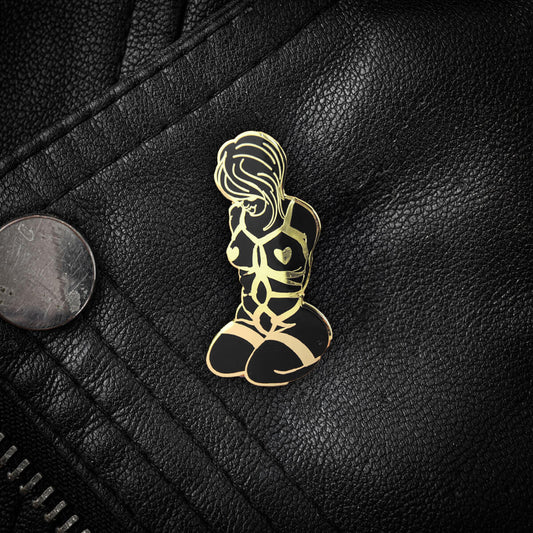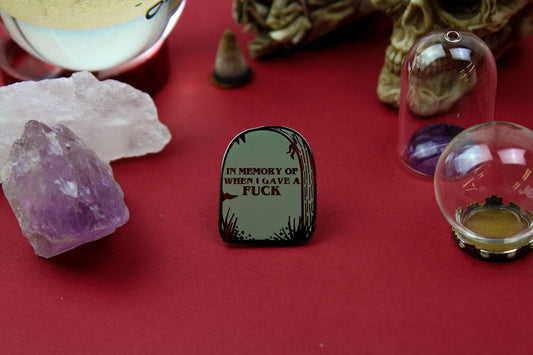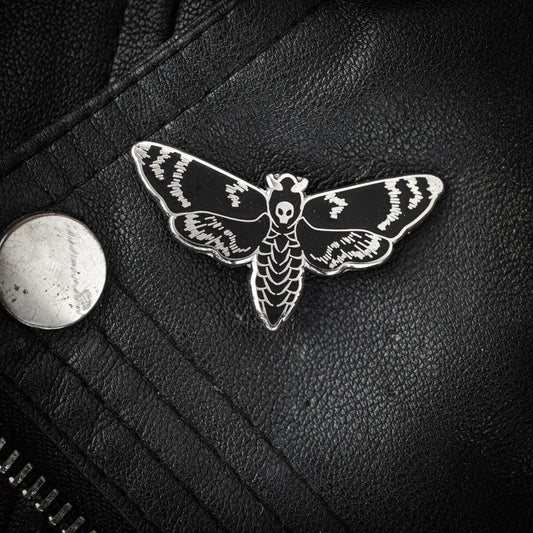
What Is the Relationship Between the Occult and Spirituality?
Share
In this blog, we're looking at how the occult, spirituality, and religion fit together. We explore the subtle ways they are similar and different, focusing on their common practices and distinct beliefs.
We examine ideas about higher powers and dive into spiritual writings to see how these areas connect. Our aim is to highlight the connections between the occult and spirituality, pinpointing the basic ideas that link them.
Come with us as we investigate the topic and improve your understanding of the relationship between the occult and spirituality. Through our analysis and reflection, we hope to deepen your interest in the mysteries central to human spirituality and the occult.
What Is Spirituality and How Does It Differ from Religion?
Spirituality is about finding your own meaning and connection with something bigger than yourself. It's about looking inside yourself, how you connect with other people, nature, and the whole universe. Unlike religion, which often has set beliefs and ways of doing things focused on a god or higher power, spirituality is more flexible and personal. It doesn't stick to fixed rules or traditional structures, letting individuals choose their own spiritual path based on what they've experienced, what they believe, and what feels right to them.
While religion gives a structured way to understand faith and be part of a community, spirituality is more about growing on your own, finding inner calm, and understanding more about yourself and the world. It can include things like meditation, being mindful, doing yoga, praying, or just spending time outside in nature. Spirituality is open to everyone, no matter where they come from or what they believe, even if they're not sure about the idea of a god.
One big difference between spirituality and religion is what they focus on. Religion often looks to an outside authority, traditions, and following specific teachings. Spirituality, on the other hand, is about freedom to explore, trusting your own inner feelings, and making a personal connection with the wider world or something transcendent. Some people find what they need in the clear structure of religion, but others prefer to mix and match spiritual practices to suit their own needs. Ultimately, spirituality is a very personal journey that can lead to peace, a sense of purpose, and a feeling of being connected to everything around you.
How Does the Occult Approach the Concept of Spirituality?
The connection between the occult and spirituality is complex, as both areas explore the unseen and aim to discover deeper truths about life. While spirituality typically focuses on personal growth, inner peace, and a connection with a higher force, the occult looks at spirituality through the study of hidden or secret knowledge. The occult includes practices and beliefs that go beyond usual understanding, such as divination, magic, alchemy, and astrology.
In the occult, spirituality is often seen as a way to tap into supernatural forces and energies to gain insight, power, or control over one's life and environment. This involves exploring mystical experiences, different states of consciousness, and unseen realms. An occultist might try to communicate with spirits, reach higher levels of consciousness, or unlock hidden abilities within themselves through rituals, meditation, or other spiritual practices.
Although spirituality and the occult both seek understanding, connection, and going beyond the ordinary, their methods and approaches can be quite different. Some people might blend occult practices with their spiritual journey, while others might keep their occult and spiritual beliefs separate. The way these two areas relate can vary greatly, depending on the individual exploring these deep and varied fields of knowledge and experience.

Are There Shared Spiritual Practices Between the Occult and Mainstream Spirituality?
The connection between the occult and spirituality involves shared spiritual practices aimed at uncovering deeper truths and promoting personal development. Practices like prayer, meditation, chanting mantras, or engaging in ceremonial magick are common in both fields, as individuals seek clarity and a connection with the divine. These activities are paths to inner peace, enlightenment, and spiritual transformation, helping practitioners explore the mysteries of life and access higher states of consciousness.
Reading spiritual texts is a widespread activity among both occultists and mainstream spiritual followers. While those seeking spiritual guidance might turn to texts such as the Bible, Torah, or Quran, occultists often look to ancient writings and grimoires to gain insights into hidden knowledge and mystical traditions. These writings are treasure troves of wisdom, providing deep understanding of reality, the human mind, and the cosmos.
The common spiritual practices between the occult and mainstream spirituality demonstrate a universal pursuit of meaning, connection, and going beyond the everyday. Through rituals, meditation, or scholarly study, individuals in these traditions strive to enhance their understanding of themselves, the universe, and the divine forces that influence their lives.
How Do Occultists View the Divine or Higher Powers?
In the occult, perceptions of divine or higher powers are varied, reflecting the broad spectrum of beliefs and practices across different occult traditions. Some occultists might embrace polytheistic or pantheistic perspectives, worshipping numerous gods and goddesses, or perceiving divinity in all aspects of nature. Conversely, others may hold a monotheistic view, acknowledging a single, supreme deity or cosmic force. Additionally, certain occultists explore animistic beliefs, assigning consciousness and spiritual significance to natural elements like plants, animals, and celestial bodies.
Occultists frequently participate in practices like divination, ritual magic, and invocation to establish connections with divine or higher powers. Through these rituals, they aim to communicate with spiritual entities, channel cosmic energies, or unlock hidden abilities within themselves. For some occultists, the divine is seen as immanent, present within and surrounding all living beings, while for others, it is considered transcendent, existing beyond the physical world.
The connection between occultists and the divine is very personal and subjective, influenced by each individual's experiences, beliefs, and practices. Whether it's through prayer, meditation, or ritual, occultists strive to establish a relationship with the divine or higher powers, seeking guidance, inspiration, and spiritual enlightenment on their mystical path.

Are There Spiritual Texts or Scriptures in the Occult?
In the world of the occult, the lack of a single, authoritative text gives practitioners the freedom to shape their spiritual practice according to their own preferences and beliefs. Unlike organised religions, which often depend on specific holy texts for guidance and doctrine, occultism draws from a varied collection of reference books and writings. These texts are key resources for delving into mystical traditions, ritual practices, and metaphysical ideas.
Notable authors in the occult community, such as Aleister Crowley, Éliphas Lévi, and Madame Blavatsky, have made significant contributions to occult literature. Their works provide insights into various aspects of occultism, including ceremonial magic, esoteric symbolism, the nature of consciousness, and the mysteries of the cosmos. Although these texts don't carry the same authoritative weight as religious scriptures, they are highly valued by occultists for their extensive knowledge and deep spiritual insights.
The freedom from a singular spiritual text in the occult supports a more flexible and varied approach to spirituality. Practitioners are encouraged to explore a broad array of teachings and viewpoints, enhancing their understanding of mystical arts and exploring the deeper secrets of the universe.
How Do Occultists Engage in Spiritual Development?
In their pursuit of spiritual growth, occultists participate in a variety of practices to broaden their awareness and deepen their knowledge of the universe. At the heart of their activities is the use of ritual, a crucial method for engaging with spiritual forces and achieving specific results. Through practices such as ceremonial magic and divination, they tap into divine energies and communicate with spiritual beings.
Meditation and visualisation techniques are key components of their practice, promoting inner peace and spiritual awareness. By calming the mind and concentrating their intentions, practitioners reach altered states of consciousness, where they can tap into deeper insights and intuition.
The exploration of hidden knowledge and mystical traditions is crucial for their development. By studying ancient texts and occult literature, they uncover insights into the nature of reality and the mysteries of the cosmos. By engaging with topics such as astrology and alchemy, occultists pursue enlightenment throughout their journey.

How Do Occultists View the Afterlife and Spiritual Realms?
The views of occultists on the afterlife and spiritual realms are deeply personal and vary significantly among practitioners. Unlike adherents of organised religions with set doctrines, occultists often have varied and unique beliefs about life after death.
Some might believe in the existence of an afterlife, while others may support the idea of reincarnation, where souls experience multiple lifetimes to achieve spiritual growth and enlightenment. Some occultists consider the possibility that souls move to astral realms after the physical body dies, where they continue to exist and evolve in non-material dimensions. Others maintain an open-minded stance, accepting the uncertainty of the afterlife with a philosophy of "whatever happens, happens."
These varied beliefs underscore the flexible and eclectic nature of occult spirituality, where practitioners are encouraged to explore and define metaphysical concepts based on their own experiences and intuition.
Are There Forms of Mysticism in Occult Spirituality?
The relationship between mysticism and occult spirituality is complex and varied. Both mysticism and occultism focus on discovering deeper spiritual truths and exploring unseen aspects of reality, yet they often vary in their methods and approaches. Mysticism is typically linked with a direct, personal encounter with the divine, moving beyond religious doctrines and formal practices. It generally concentrates on inner reflection, meditation, and a spiritual connection with the divine or higher consciousness.
Conversely, occult spirituality includes a wider array of practices and beliefs, such as ceremonial magic, divination, and the exploration of hidden knowledge. While there is some overlap with mysticism, particularly in the quest for mystical experiences and spiritual insights, occultism usually operates outside traditional religious structures and focuses more on tapping into concealed forces and energies for practical outcomes.
Although mysticism and occult spirituality both aim for spiritual awakening and enlightenment, they pursue these objectives with different focuses and techniques. Mysticism prioritises internal reflection and direct interaction with the divine, whereas occultism engages with the universe's mysteries through rituals, magic, and secret knowledge.

How Is Occult Spirituality Represented in Art and Culture?
Occult spirituality has significantly influenced artists and creators across different mediums, enriching art and culture with mystical themes and hidden symbols. A notable instance is the surrealist movement of the 20th century, which aimed to access the subconscious mind and delve into the depths of human consciousness. Artists like Salvador Dalí and Max Ernst included occult imagery and symbols in their creations, using ideas from alchemy, astrology, and mysticism to craft dreamlike and surreal landscapes.
In literature, occult themes have fascinated readers for centuries, from the Gothic novels of the 18th and 19th centuries to modern fantasy and horror fiction. Authors such as H.P. Lovecraft and Neil Gaiman have delved into themes of cosmic horror, magic, and the supernatural, crafting complex stories that blur the boundaries between reality and the imaginary.
Additionally, occult spirituality has made a significant impact on music, with bands like Led Zeppelin and Black Sabbath weaving occult symbolism and themes into their lyrics and album artwork. The album covers of Led Zeppelin's "Led Zeppelin IV" and Black Sabbath's "Black Sabbath" display occult imagery, showcasing the bands' interest in mysticism and the occult.
In film and television, occult themes are commonly explored across genres like horror, fantasy, and science fiction. From classic movies such as "Rosemary's Baby" and "The Exorcist" to contemporary TV series like "American Horror Story" and "Stranger Things," occult spirituality continues to engage audiences with its mysterious and otherworldly appeal.
To learn more about the occult, start with our article 'what is the occult?'.













